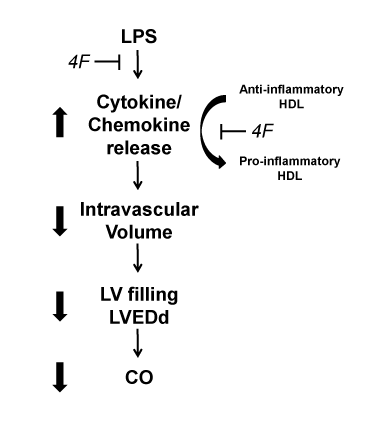
 |
| Figure 5: Proposed mechanism of 4F action in LPS-treated rats. An increase in circulating levels of pro-inflammatory mediators is an early response to LPS administration. Cytokines induce injury at the cellular level and promote the loss of fluid to the extravascular compartment. Accordingly, edema reduces circulating blood volume and thus LV filling and cardiac output. LPS may also facilitate the hepatic release of acute phase proteins that bind to and modulate the protein composition of the HDL particle. This interaction is associated with the conversion of HDL from an anti-inflammatory to a pro-inflammatory particle. 4F inhibits this inflammatory cascade via binding and neutralization of LPS. In this manner, the peptide prevents LPS from interacting with target cells and averts the formation of dysfunctional HDL particles. |